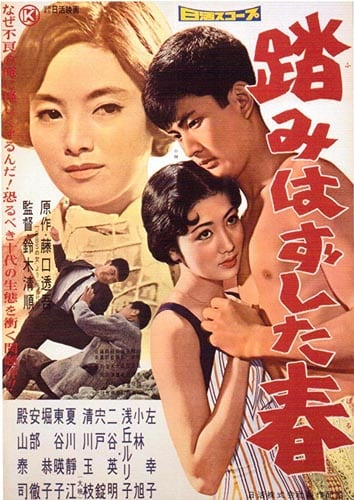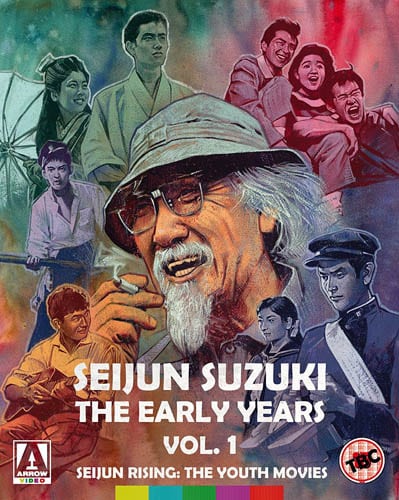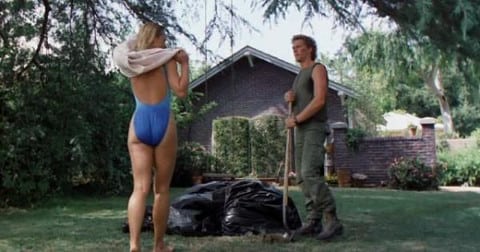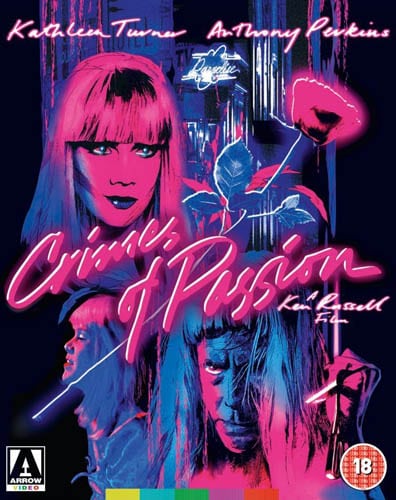Fumihazushita haru, The Boy Who Came Back (1958)
Directed by: Seijun Suzuki
Written by: Nobuyoshi Terada, Tatsuto Okada
Starring: Akira Kobayashi, Jô Shishido, Ruriko Asaoka, Sachiko Hidari

THE BOY WHO CAME BACK (1958)
aka Fumihazushita haru
Directed by Seijun Suzuki
Tour bus guide Keiko takes up a volunteer position with the BBS as a probation worker for troubled youth Nobuo Kasahara who’s penchant for fighting saw him spend time in a young offenders reform school. Convinced that Nobuo is truly a good person at heart, she attempts to set him on the right path but can he curb his hot-headedness to turn his life around for good?
Nikkatsu Corporation’s legendary director Seijun Suzuki plays it cool in his early movie, THE BOY WHO CAME BACK, which details the uphill struggle of a young man attempting to suppress his temper in order to break away from the gang life he’s grown up with.
Slow paced yet a riveting little drama, we follow the ever optimistic Keiko (Sachiko Hidari) in her personal quest to see her first assigned youth straighten his life out but has she bit off more than she can chew? Her happy-go-lucky approach seems to blind her from the Nobuo’s atrocities but unlike those around her, she seems to see something in Nobuo that even he himself has trouble seeing: a heart.
Nubuo (Akira Kobayashi) is a straight up punk who’s not entirely thrilled about having a Big Sis around, keeping an eye on him, but at the same time he treats her with respect… well, enough respect he can muster. That doesn’t mean he doesn’t trick or manipulate his gullible probation worker though. He often trolls her and in some instances, gives her a slap around the chops for good measure, but like a loyal lapdog, she comes running back to help. This loyalty to him is something he seems never to have experienced before and confides in her his love for Kazue (Ruriko Asaoka), a girl he adores and the reason he was sent to reform school (he ended up beating up a rival giving her unwanted attention). The sole reason he wishes to turn his life around is for her but he fears that ship has sailed and that he is too hardwired into being a thug that he’s destined to become a hardened criminal gang member.
THE BOY WHO CAME BACK is quite a sweet tale that shows how one person limiting himself due to his upbringing and his own self-destruction can be turned around by the love and support of someone who believes in him. Yes, sometimes it’s cruel but so is life yet Keiko is the shining star that won’t give up. From her hiding behind a tree and giggling at something very minor, she’s quite the character and provides many laughs throughout the film. Nobuo doesn’t make it easy for her though and just as she is forcing him to walk the straight and narrow, he too pushes her into experiences that she’s never endured before. You could say he takes her right to the edge of her own limits and almost breaks her willpower, even at one point threatening her role as a BBS officer. Like Nubou, she must adapt if she has to survive and they need each other to get them where they want to be.
Cheerful and upbeat despite Nubou’s ill-tempered attitude, THE BOY WHO CAME BACK is a movie with heart and passion and really develops as the film progresses. It starts off slow and plodding but gradually gains momentum just like Keiko’s plan to reform the delinquent Nubuo. She mustn’t fail and neither should we.
Simple yet effective, THE BOY WHO CAME BACK is an endearing piece of work that set the stage for Suzuki’s later gangster pieces.
Released as part of Arrow Video’s Seijun Suzuki: The Early Year Vol. 1








Be the first to comment